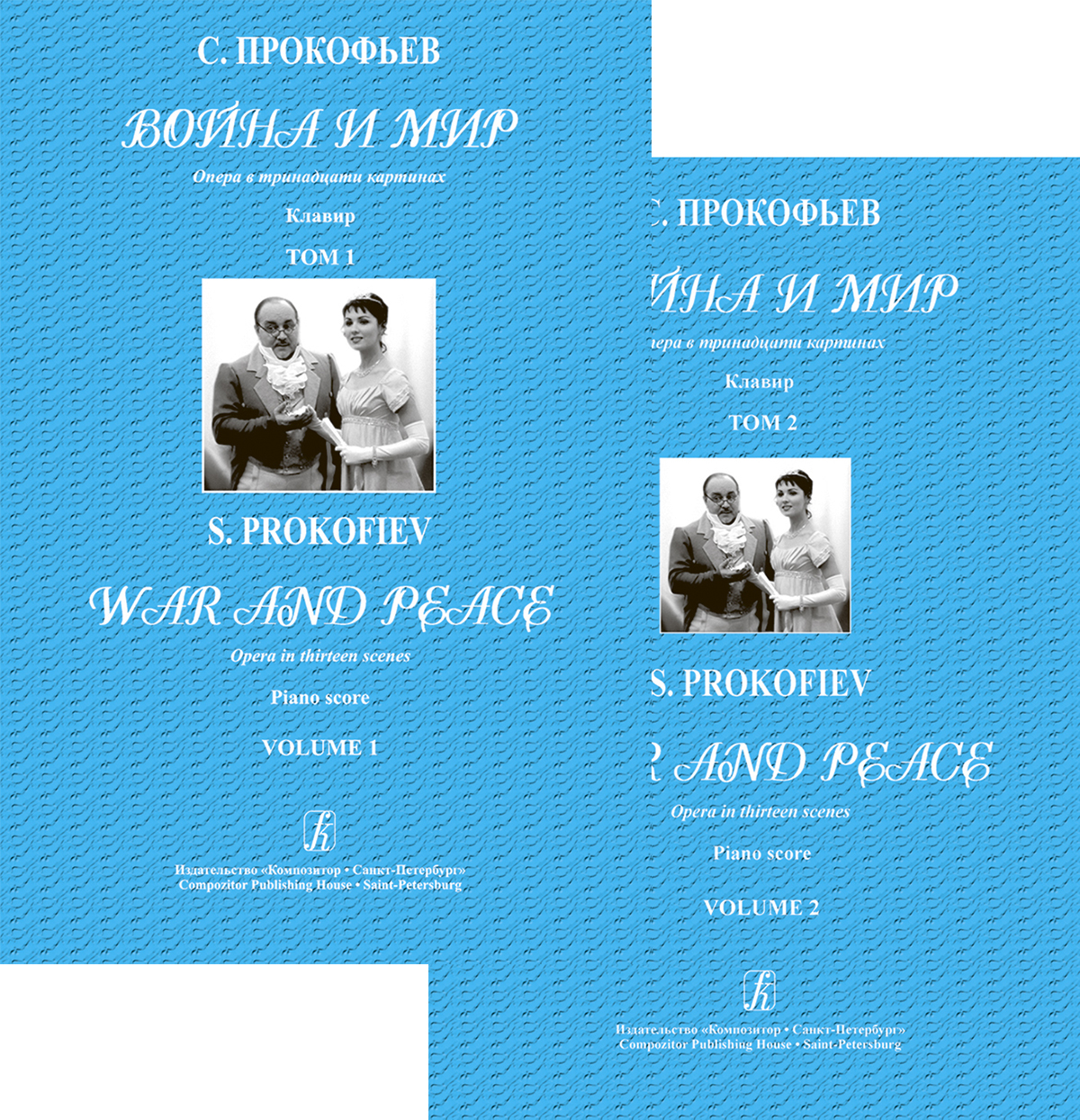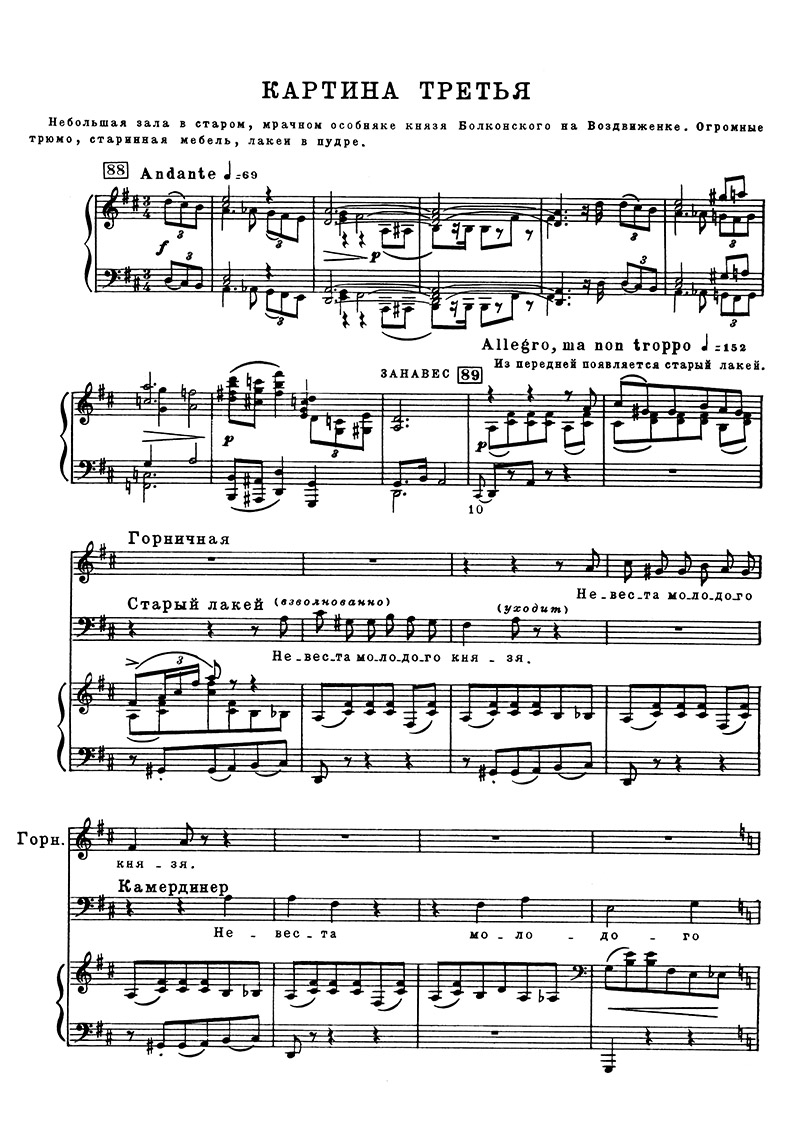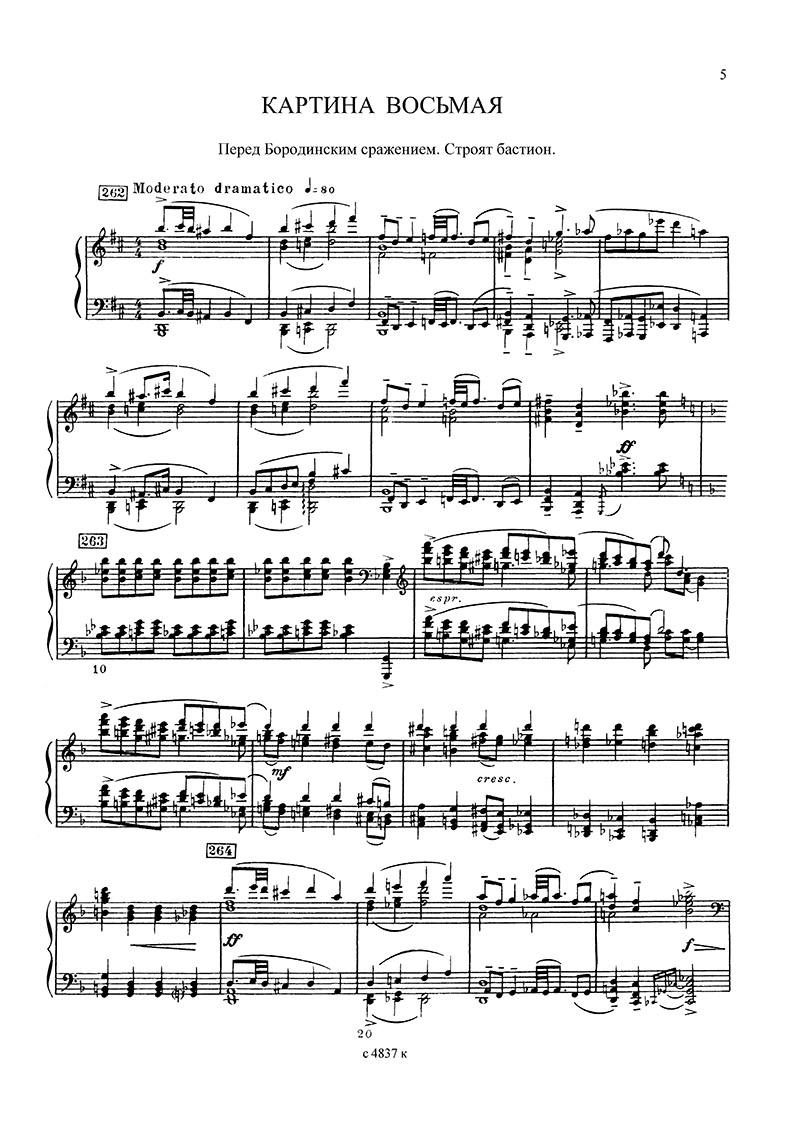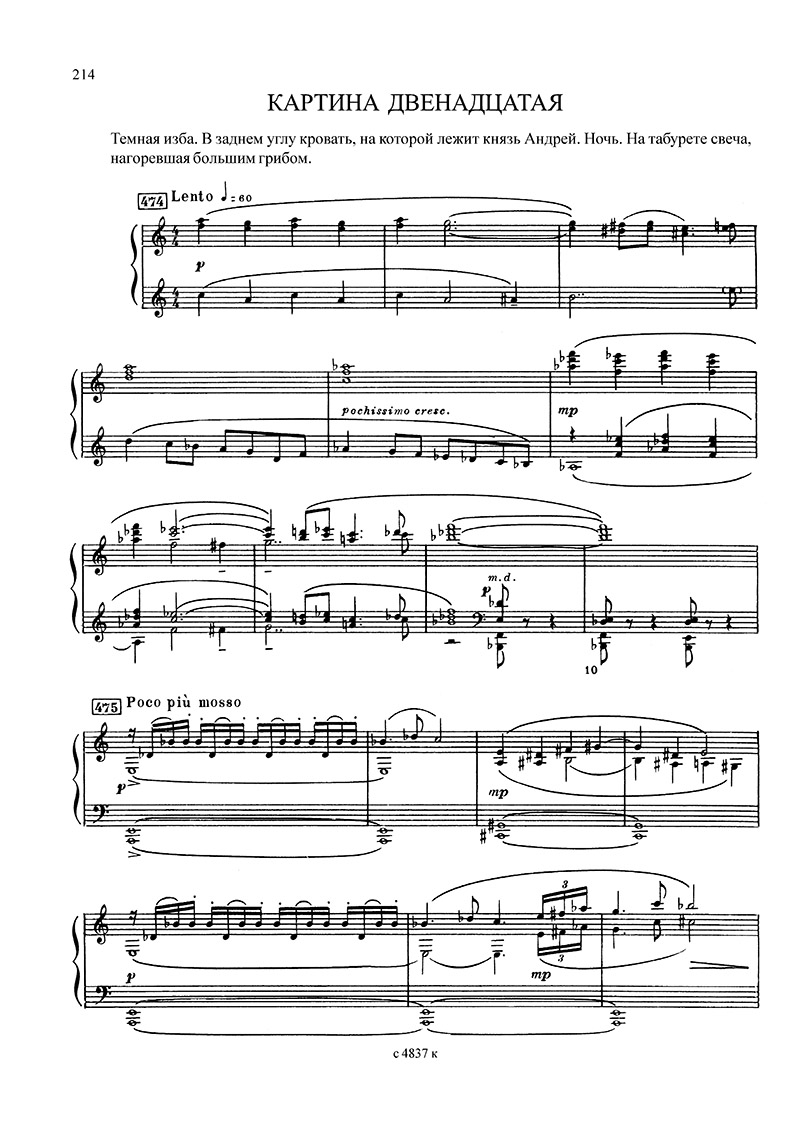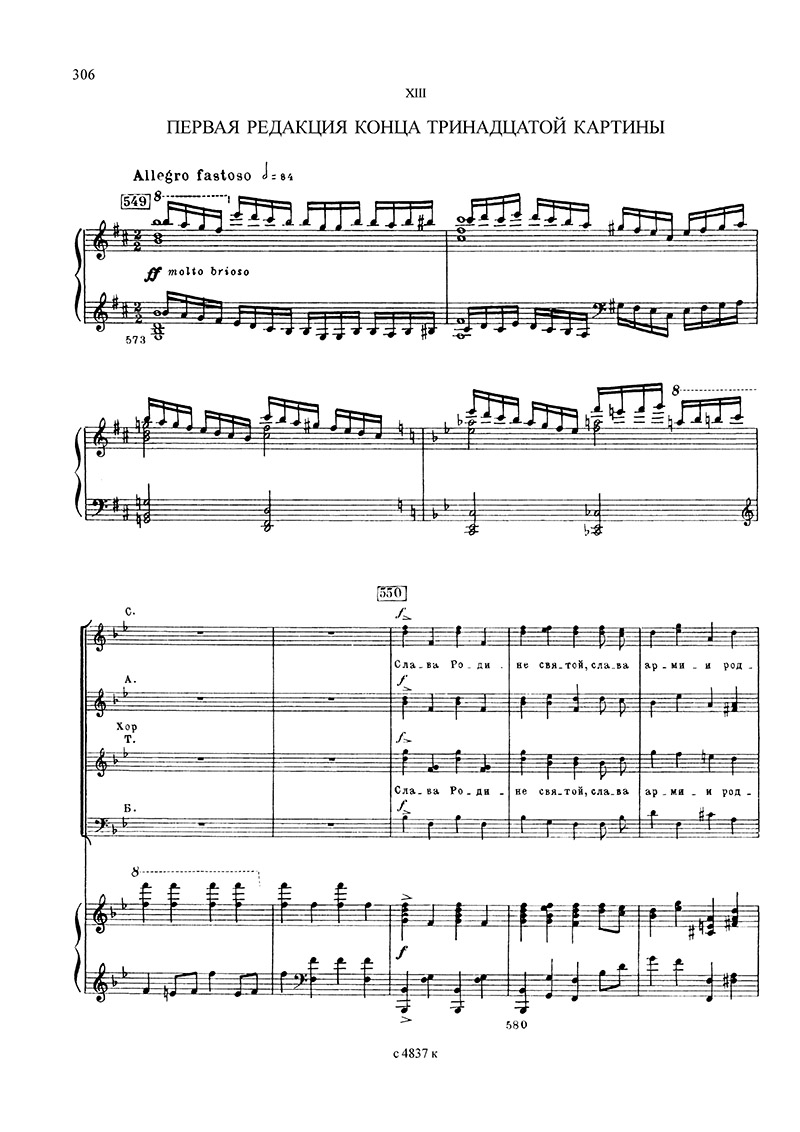
Prokofiev S. War and Peace. Vol. 1, 2. Opera in 13 scenes. Piano score.
- Author:
- Prokofiev S.
- Author (full):
- Sergei Prokofiev
- Title (full):
- War and Peace. Opera in 13 scenes. Piano score. Volume 1, 2
- Number of pages:
- 216+328
The opera “War and Peace” by Prokofiev is the composition of the greatest might and expressiveness. Its libretto is based on the original text of Tolstoy’s novel, that wasn’t remade to poetical verses. The composer’s main objective was the interpretation of Tolstoy’s intonation, his intrinsic manner of oral speech peculiar to his personages. Therefore Prokofiev’s recitatives are mastered scrupulously and passionately.
The opera may be divided into two parts, i. e. the peace — the first seven scenes and the war — the last six scenes. The military ghost appears already in the seventh scene’s final, when the news of Napoleon’s invasion comes. Thus Prokofiev adheres to Tolstoy, though the premonition of impending peril rises in the beginning “peaceful” scenes.
Surely, no staging is able to reveal Tolstoy’s epic canvas. This is the love story of Natasha and Prince Andrey, so as Natasha’s infatuation for Anatolle to be the centre of the events in the opera’s first part. Prokofiev managed to embody the most essential subject of the novel most genuinely and ardently. The pictures of Russia fighting with its enemy are presented profoundly and forcefully. Prokofiev exposes the difference between Kutuzov’s lofty majestic and bold inspiration and Napoleon’s hysterical bravado.
Tender, lyrical and touching music characterizes Natasha. Prokofiev continues the traditions of Rimsky-Korsakov and his artistic devices in the “Snow-Maiden”, depicting lyrical personages by means of frail gentle intonations. However, Natasha’s nature is not merely pure and lucid. Sometimes she manifests the true courage, willpower and noble fortitude. Meanwhile the lyrical nature is the main constituent of this female personage. Romantic atmosphere surrounds Natasha. Famous waltz becomes its apotheosis, symbolizing Andrey’s perception of Natasha by his mind. The theme of waltz rises as the insight in badly wounded Prince Andrey’s mind, when Natasha comes to see him. Lyrical spirit is evenly stained in dramatic colours.
Prokofiev is the sculptor of characters, exposing their minds through the systems of special intonations. The composer’s penetration into the most subtle hints of oral speech makes for the credibility of Prokofiev’s personages.
A. Gozenpud. Opera Dictionary
- Author
- Prokofiev S.
- Author (full)
- Sergei Prokofiev
- Title (full)
- War and Peace. Opera in 13 scenes. Piano score. Volume 1, 2
- Number of pages
- 216+328
